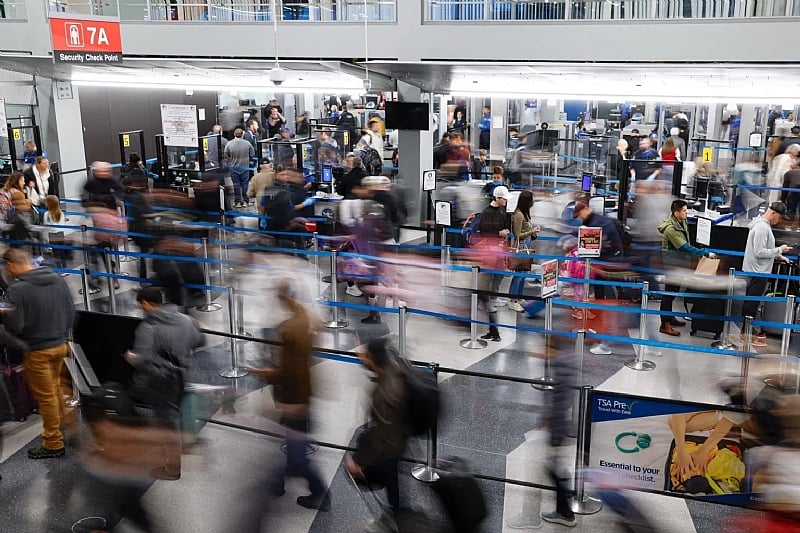The Trump administration’s stated policy objective of significantly altering U.S. travel and immigration policies poses potential risks for journalists, particularly those from or traveling to specific nations. A proposed travel ban, modeled after one enacted during Trump’s first term and upheld by the Supreme Court, targets over 40 countries, including Iran, Russia, Venezuela, and several African nations, for full or partial travel restrictions to the U.S. While currently postponed, this ban could be reinstated swiftly and without much notice. Heightened scrutiny of travel documents by U.S. Customs and Border Protection (CBP) officials has already been reported, creating an uncertain environment for international travelers, including journalists. Although the Committee to Protect Journalists (CPJ) has not yet documented direct impacts on journalists since the announcement, the potential for unpredictable enforcement and broad discretionary powers granted to border agents necessitate proactive safety measures.
Journalists potentially affected by these travel restrictions must carefully evaluate the necessity of travel and explore remote reporting options when feasible. A thorough risk assessment should consider individual circumstances such as immigration status, nationality, travel history, and the nature of their journalistic work. Key risks include prolonged questioning at U.S. borders, particularly for those covering politically sensitive topics or having connections to targeted countries. Journalists should anticipate inquiries about their affiliations, work history, and reporting on sensitive subjects. Electronic device searches are another significant concern. CBP possesses the authority to search devices without a warrant, potentially exposing sensitive data like contacts, sources, and unpublished material. Refusal to comply can lead to further scrutiny, detention, device seizure, or complications with future travel. Ultimately, entry denial remains a possibility, even for those with valid documentation. Border agents retain considerable discretion, and while U.S. citizens and lawful permanent residents cannot be denied entry, they may face prolonged questioning and device confiscation for non-compliance. Dual nationals, especially those using passports from restricted countries, face heightened risks, including visa delays and entry denials. Similarly, lawful permanent residents and U.S. citizens refusing device access may encounter complex legal procedures and future travel complications.
Prior to travel, journalists should undertake several precautionary measures. A comprehensive risk assessment should consider individual vulnerabilities based on nationality, travel history, and the sensitivity of information carried on electronic devices. Establishing emergency contacts, including legal counsel and press freedom organizations, and implementing check-in procedures with trusted individuals are crucial. Ensuring passport validity, possessing necessary visas or Electronic System for Travel Authorization (ESTA), and preparing responses to potential border control inquiries are also essential. Understanding legal rights regarding device searches and access is paramount. Journalists employed by media organizations should consult their employers for IT support and guidance. Seeking legal advice from lawyers or press freedom organizations about potential risks is highly recommended.
Digital security is of utmost importance. High-risk individuals should consider using separate devices and SIM cards for travel, containing only essential information. Backing up, deleting, or restricting access to sensitive data on personal and work devices is crucial. Logging out of accounts, clearing browsing history, and reviewing social media content for potentially compromising information are also recommended. Implementing strong digital security practices like two-factor authentication (2FA) using an authenticator app, not SMS, and enabling travel mode on password managers are crucial. Reviewing contact lists and removing potentially risky entries is also advised. Enabling full-disk encryption and using strong PINs for device access are vital security measures. Finally, powering down all devices before crossing the border is recommended, although border agents may request them to be turned on.
Should a journalist be stopped at the border, remaining calm, respectful, and truthful is vital. Identifying oneself as a journalist and presenting credentials, if possible, is advisable. Politely declining device searches if sensitive information is present is permissible, but be prepared for potential escalation. Contacting legal counsel is crucial if rights are violated or detention is prolonged. The American Civil Liberties Union (ACLU) advises having legal counsel’s contact information readily available. Journalists should assert their right to remain silent if they believe they are suspected of committing a crime.
While in the U.S., journalists should maintain vigilance and awareness of potential risks. Reporting on politically sensitive topics, covering protests, and expressing critical views on social media can attract unwanted attention. Staying informed about visa policy changes, entry denials, and patterns of increased border enforcement is vital. Monitoring State Department announcements for updates on visa restrictions is recommended. Awareness of specific entry points with higher rates of detentions can inform travel planning. The CPJ offers support and resources, including direct contact with their Emergencies team, safety training, and access to additional physical, digital, and mental health safety resources on their website.
These comprehensive preparations and awareness of potential risks can assist journalists in mitigating the challenges posed by the current U.S. travel and immigration landscape. Staying informed, implementing strong digital security practices, and understanding one’s legal rights are crucial for navigating this uncertain environment safely and effectively. Leveraging available resources and support networks can provide essential assistance in navigating these complex issues.














